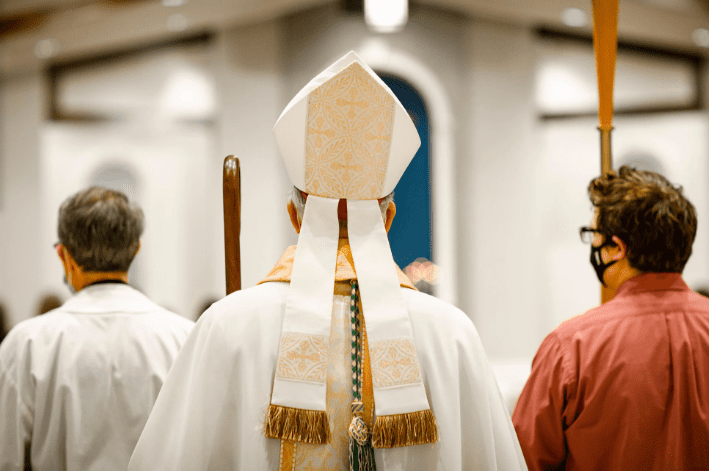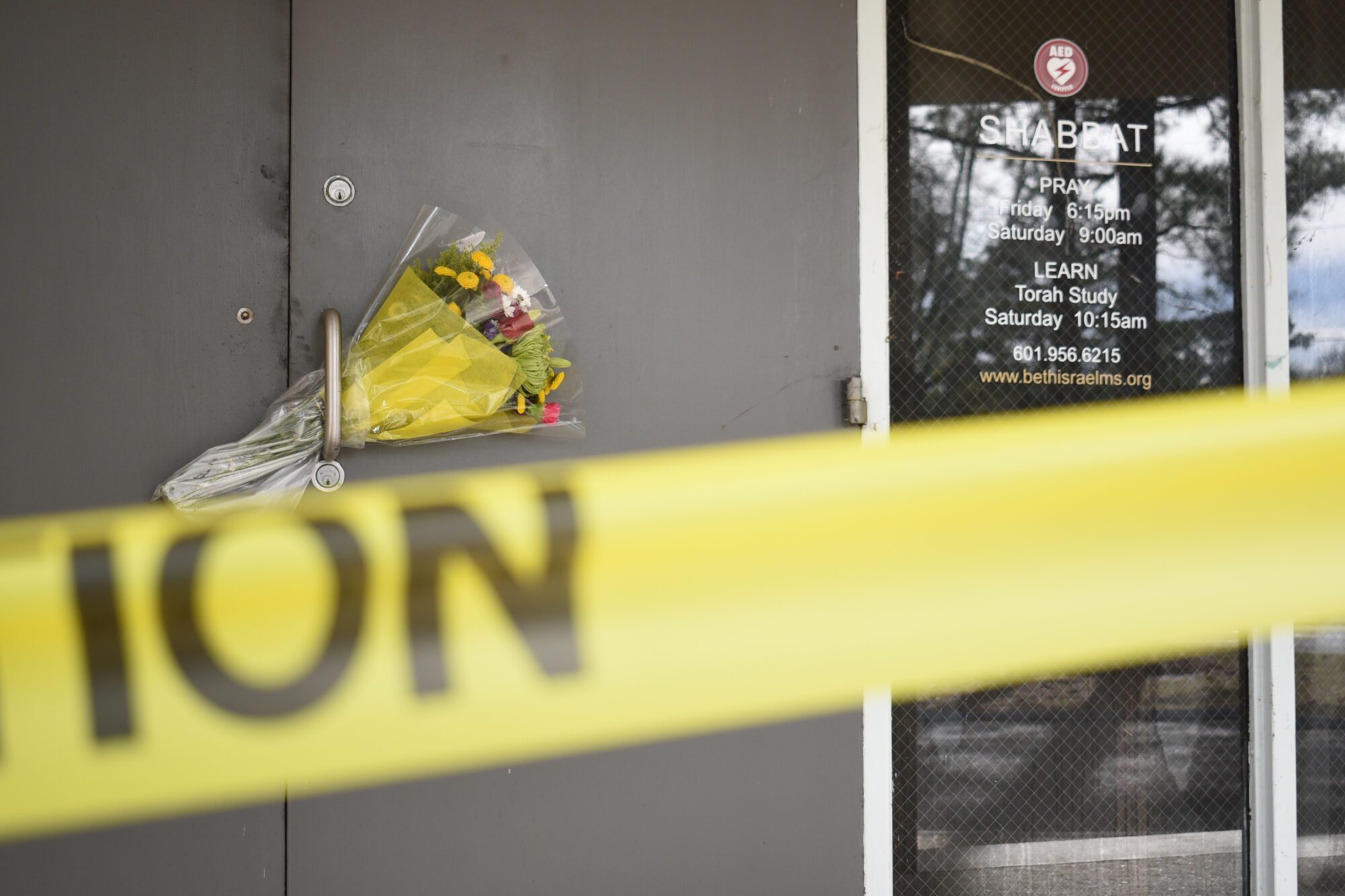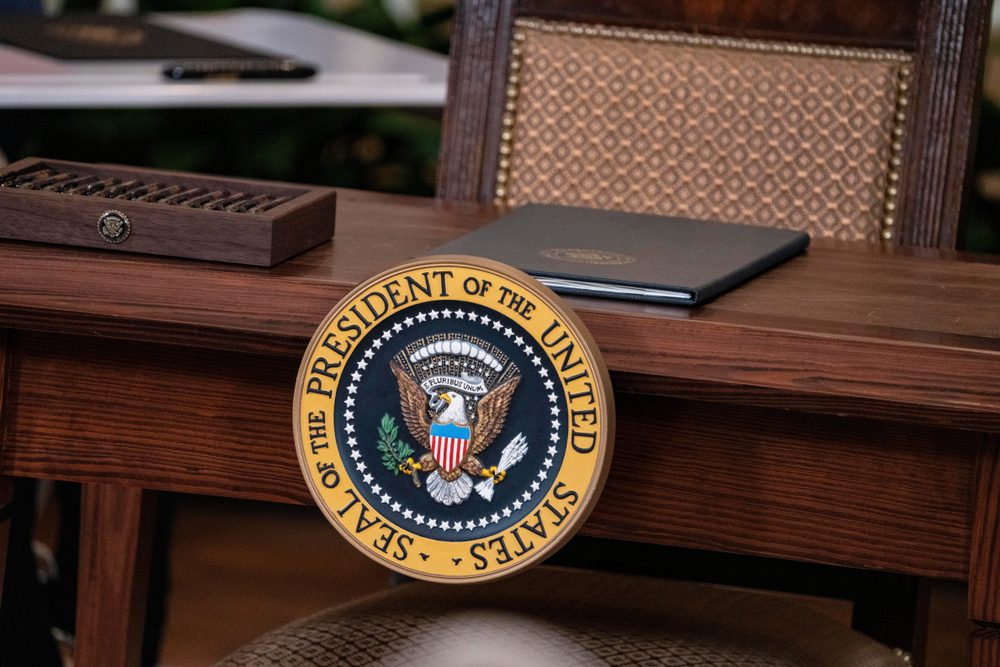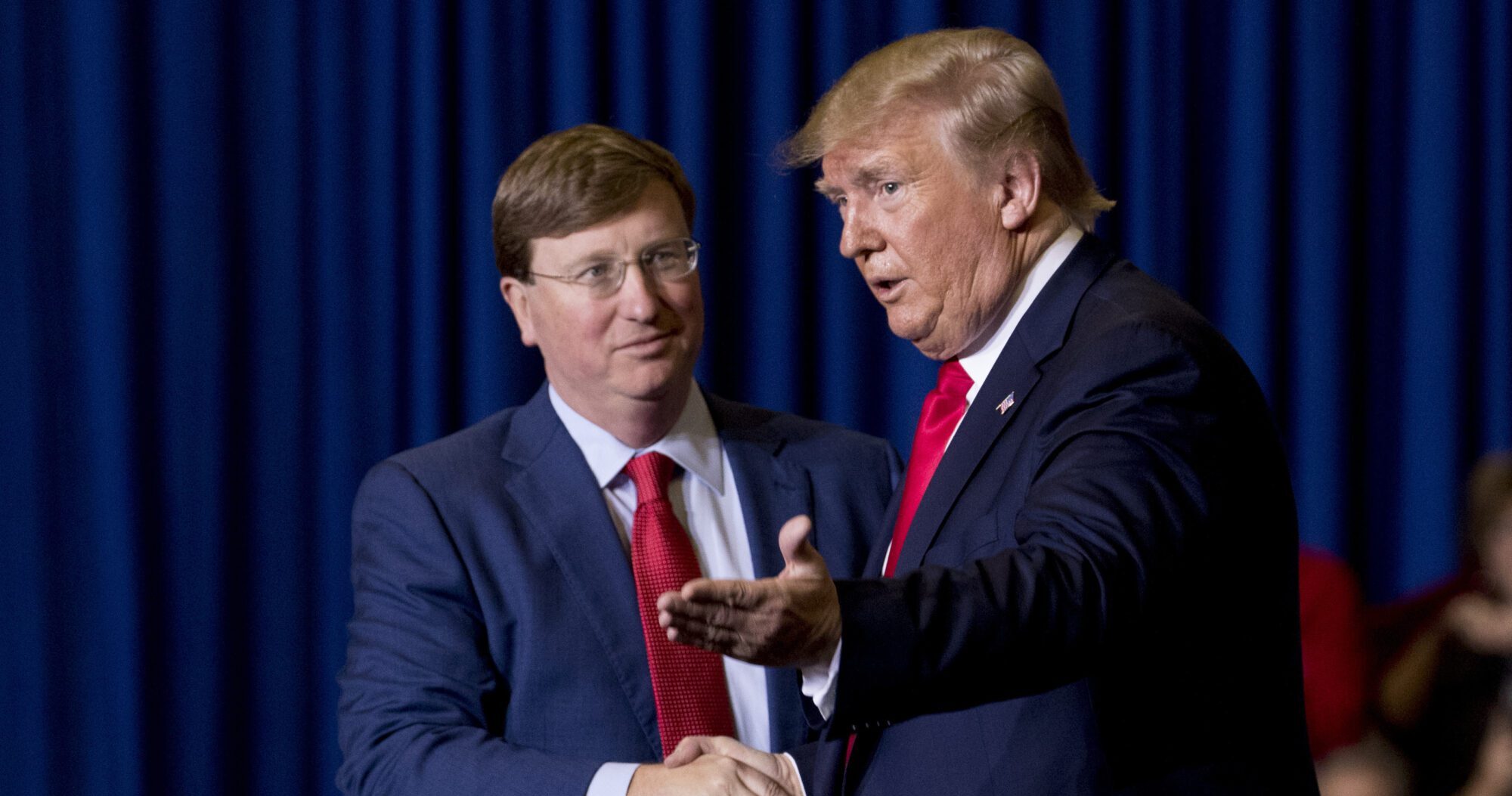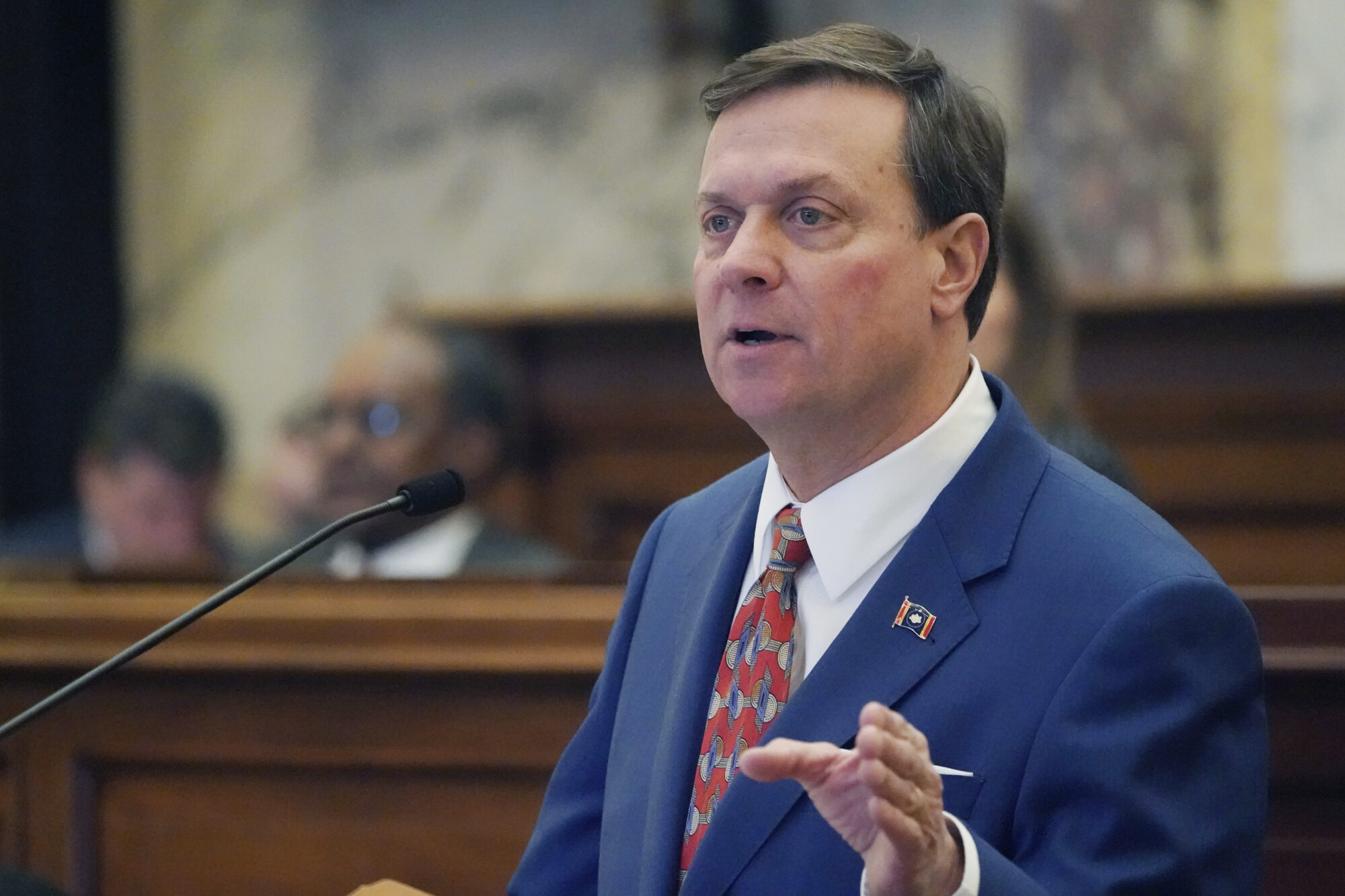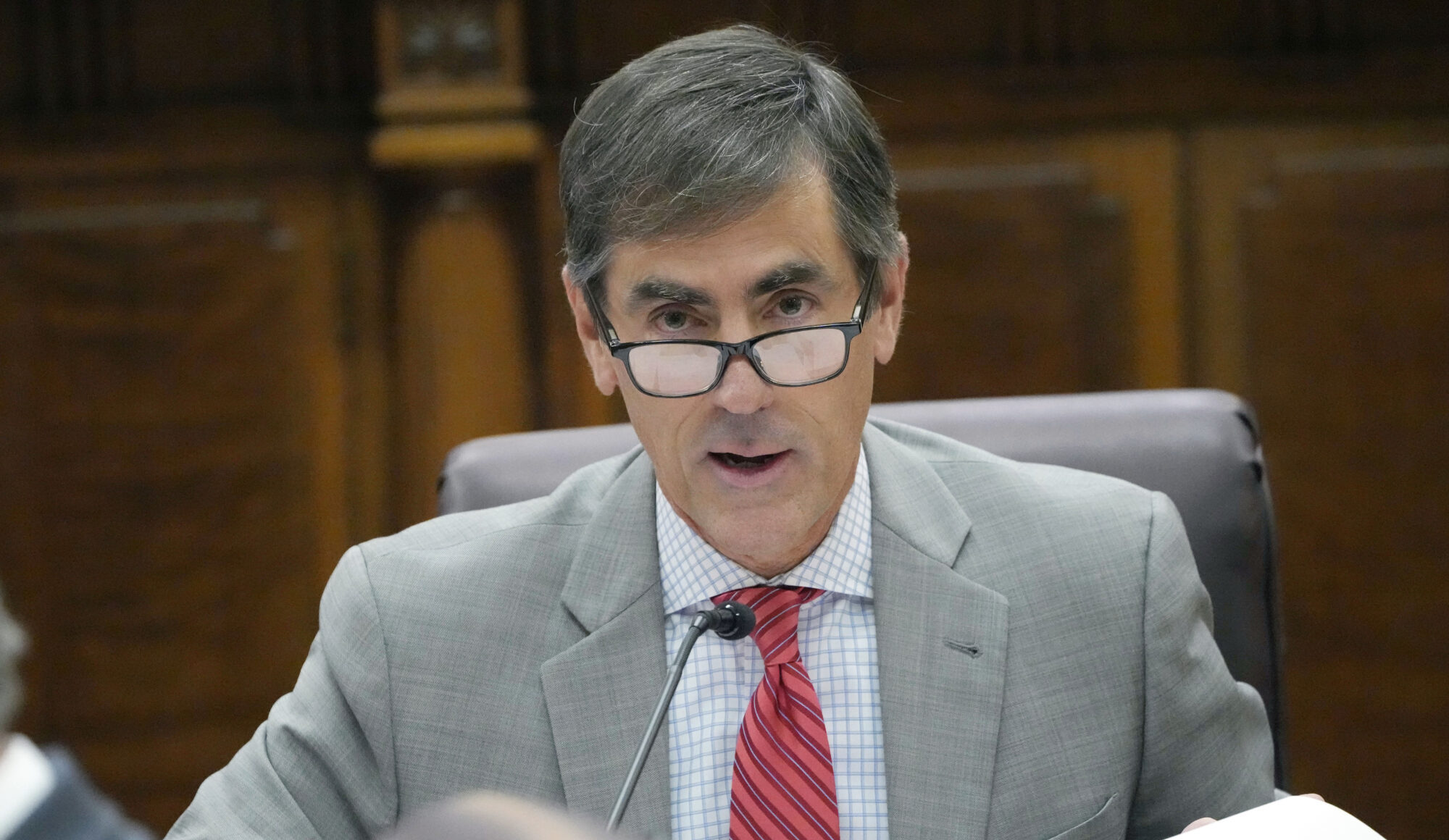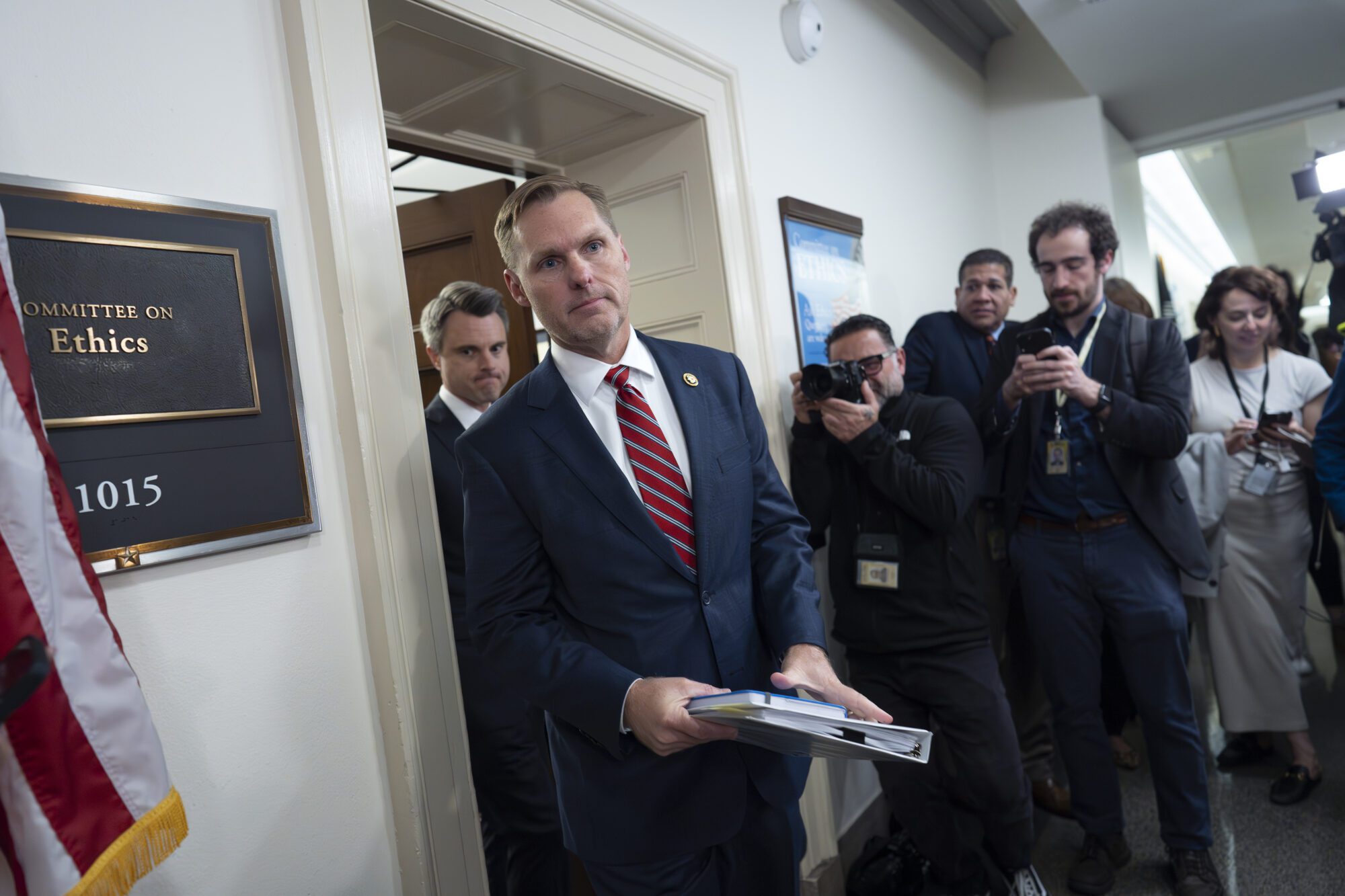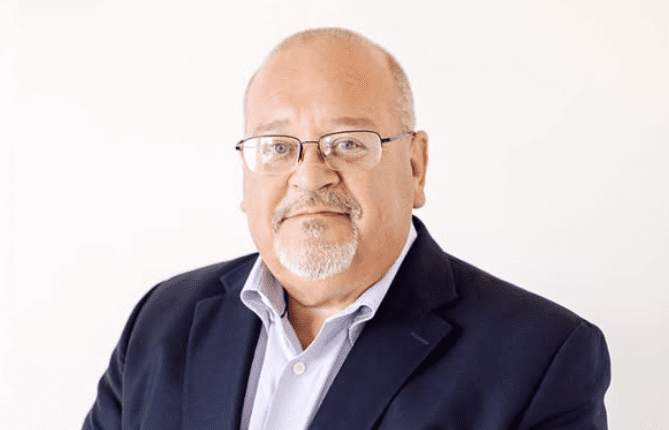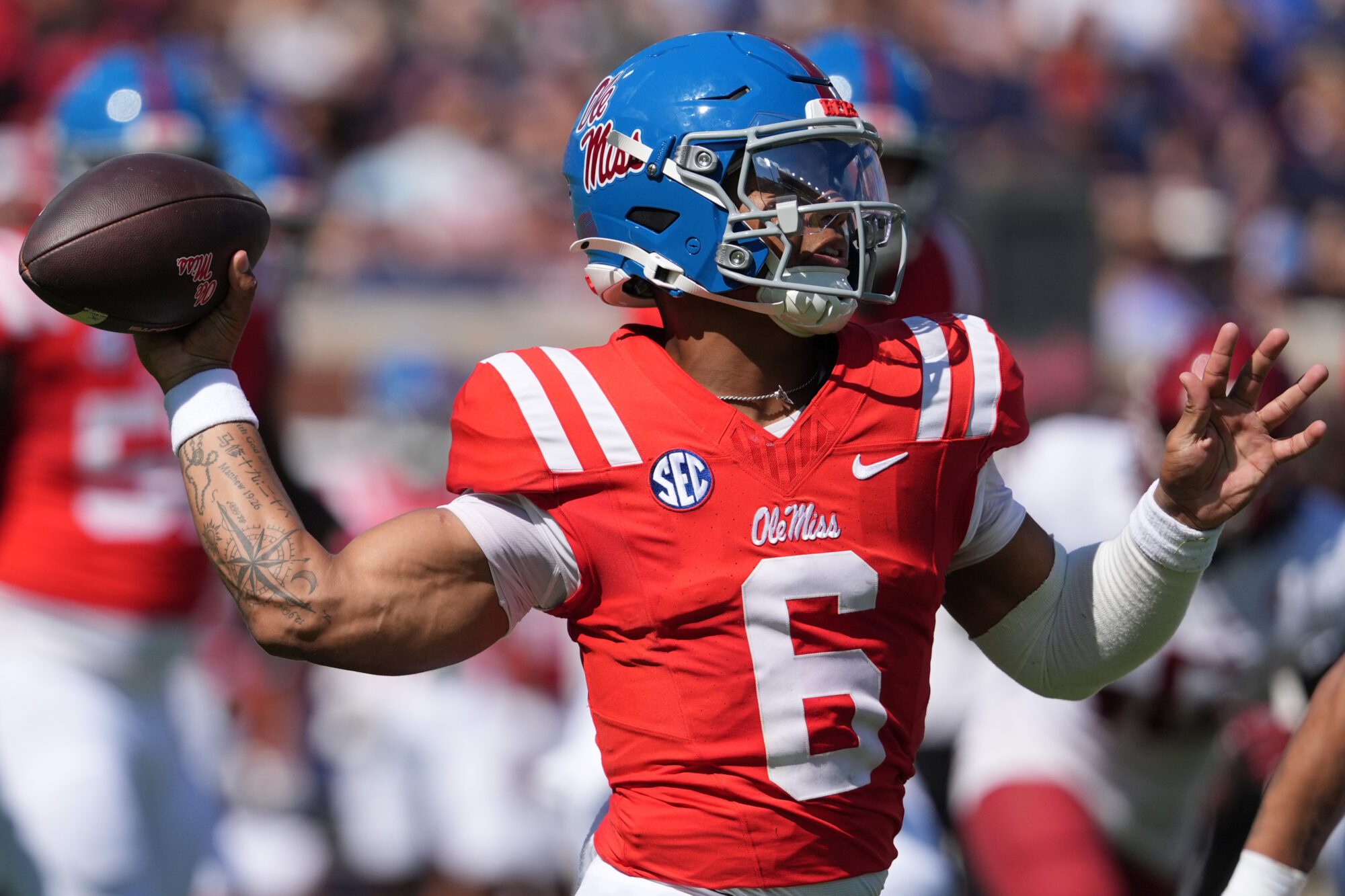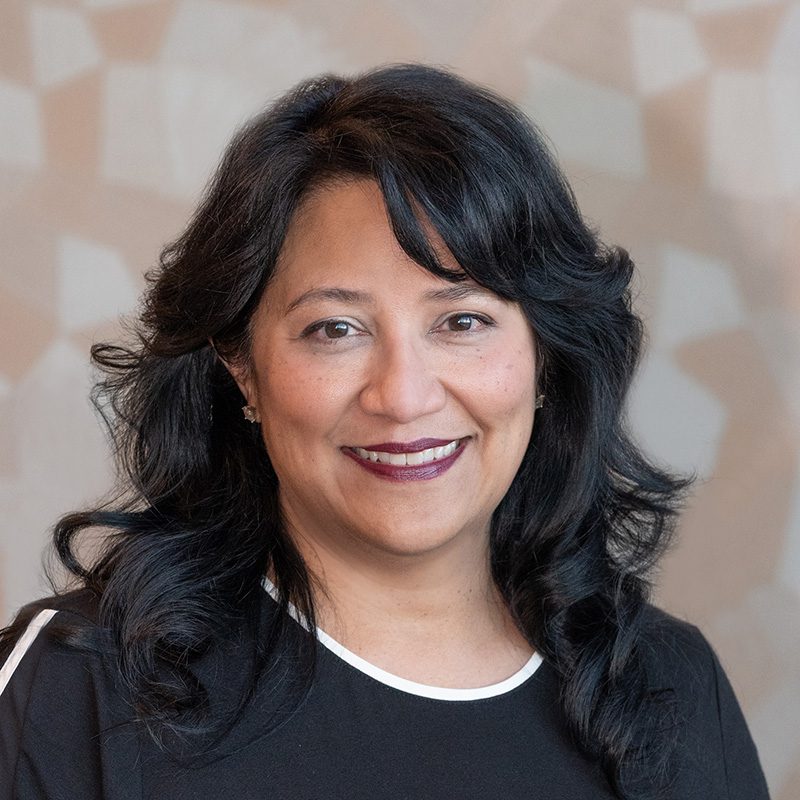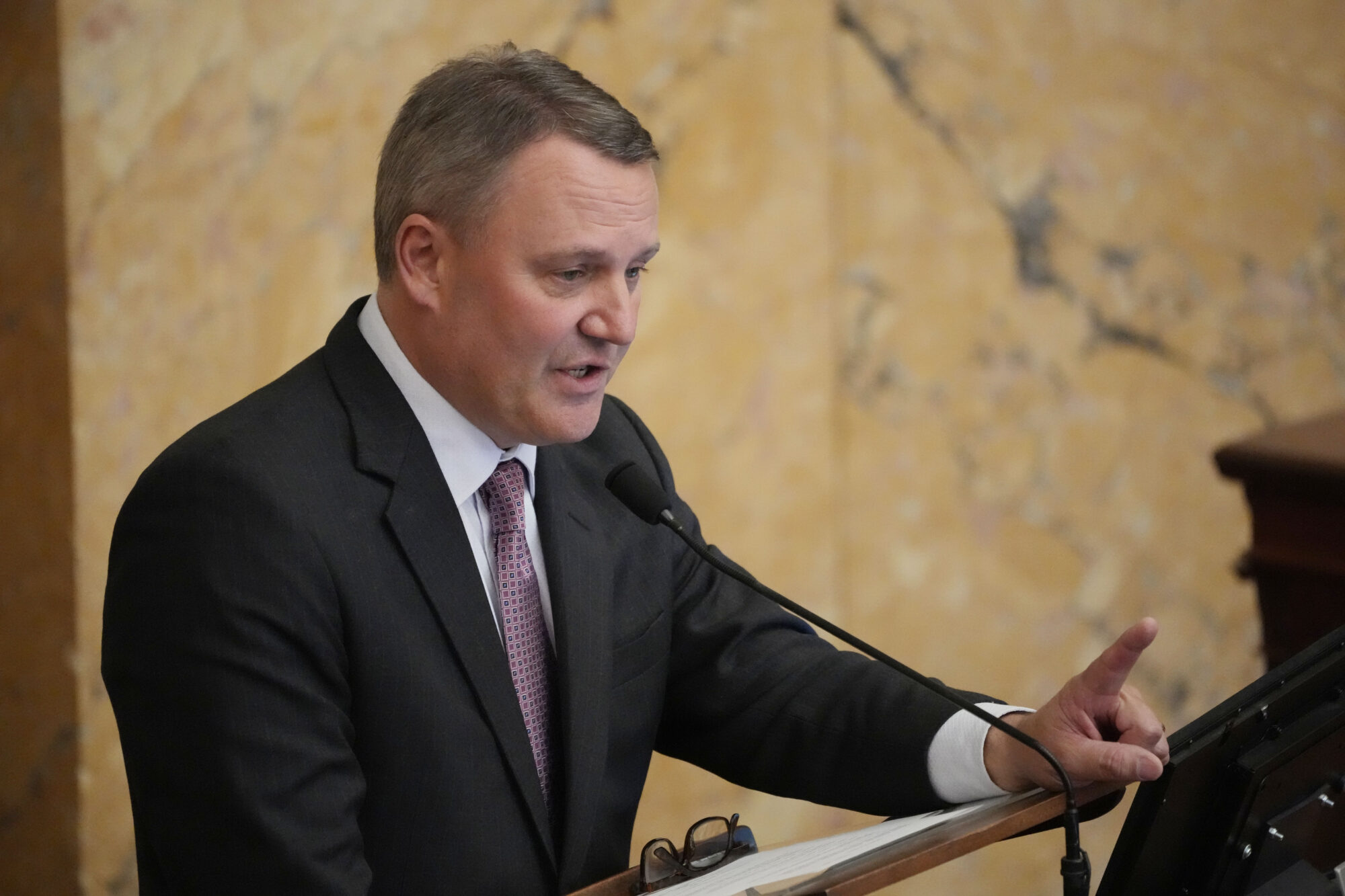
Mississippi House Speaker Jason White, R-West, reminds lawmakers of the swearing into office ceremony of statewide officials, Thursday, during a joint session of the Mississippi Legislature, as work concludes on Wednesday, Jan. 3, 2024, in the House Chamber at the Mississippi State Capitol in Jackson, Miss. (AP Photo/Rogelio V. Solis)
- The Mississippi House of Representatives is poised to consider legislation that would allow all Mississippi students to select the school setting that works best for them within five years.
Speaker of the House Jason White said in the lead up to the legislative session that the creation of education scholarship accounts for Mississippi’s students was a top priority. The Mississippi Student Freedom Act, filed by House Education Chairman Rob Roberson (R), suggests his commitment to the concept stands.
HB 1449 creates Magnolia Scholarship Accounts (MSA) that within five years would give every child in Mississippi a choice in how and where they are education. It is a bold step, one that is likely to draw the support of Governor Tate Reeves, and challenge in the Mississippi Senate, where Lt. Governor Hosemann has raised concerns about the potential cost of such a program.
Roberson told Magnolia Tribune his goal was to start a conversation about how best to serve Mississippi’s students. He said he was particularly interested in helping kids with special needs and kids in failing districts who might not currently have the right education options to meet their needs.
White and Roberson may have an ally in the push. The general public is supportive of the concept. Mason-Dixon Strategies conducted a poll of the issue on Magnolia Tribune’s behalf last October. 64 percent of respondents voiced support for the creation of “education scholarship accounts that allow parents to use public funds to pick the school of their choice, whether that be a public, private or homeschool.” Support was consistent across Republicans (70%), Democrats (55%), Independents (64%), white (69%) and Black (53%) residents.
In recent years, multiple states have enacted education freedom policies to allow public money to follow a student to the school setting of his or her choosing, including efforts led by Governors Ron DeSantis in Florida and Sarah Huckabee Sanders in Arkansas.
Education reform advocate Corey DeAngelis told Magnolia Tribune, “ten states controlled by Republican legislatures have passed universal school choice in the past three years alone. A school choice revolution is unfolding before our eyes, with momentum in 2024 in states like Alabama, Gerogia, Louisiana and Tennessee.”
DeAngelis points to the fact that Arizona passed its program with one-seat Republican majorities in both chambers and that North Carolina’s legislature acted over the objection of its Democratic Governor Roy Cooper. He says, “if Arizona and North Carolina can pass the Republican Party platform issue of school choice, Mississippi should have no problem doing the right thing.”
Under the House bill, the program would be phased in slowly, starting with low income students and advancing by year to cover more students until every child has the option of a Magnolia Scholarship Account by the 2029-2030 school year.
Each participating student’s scholarship account would be funded at an amount equal to one hundred percent (100%) of the average amount of the state share of per-student expenditure. Oversight of the accounts would be the responsibility of the State Treasury Department.
Ten states controlled by Republican legislatures have passed universal school choice in the past three years alone. A school choice revolution is unfolding before our eyes, with momentum in 2024 in states like Alabama, Gerogia, Louisiana and Tennessee.
Corey DeAngelis
Unlike a voucher, which provides tuition only to a specific non-public school, Magnolia Scholarship Account funds could be used for a wide variety of education-related activities, including:
- Tuition and fees for a non-public school.
- Payment for purchase of textbooks, curriculum or other instructional materials.
- Payment for educational services, including, but not limited to, tutoring or therapy.
- Fees related to cocurricular and extracurricular activities.
- Courses or contracted educational services provided by a public school.
- Fees for educational assessment and transportation provided by a fee-for-service transportation provider for the child to travel to and from a school.
- Computer hardware, Internet access, or other technological devices or services that are primarily used to meet a participant’s educational needs.
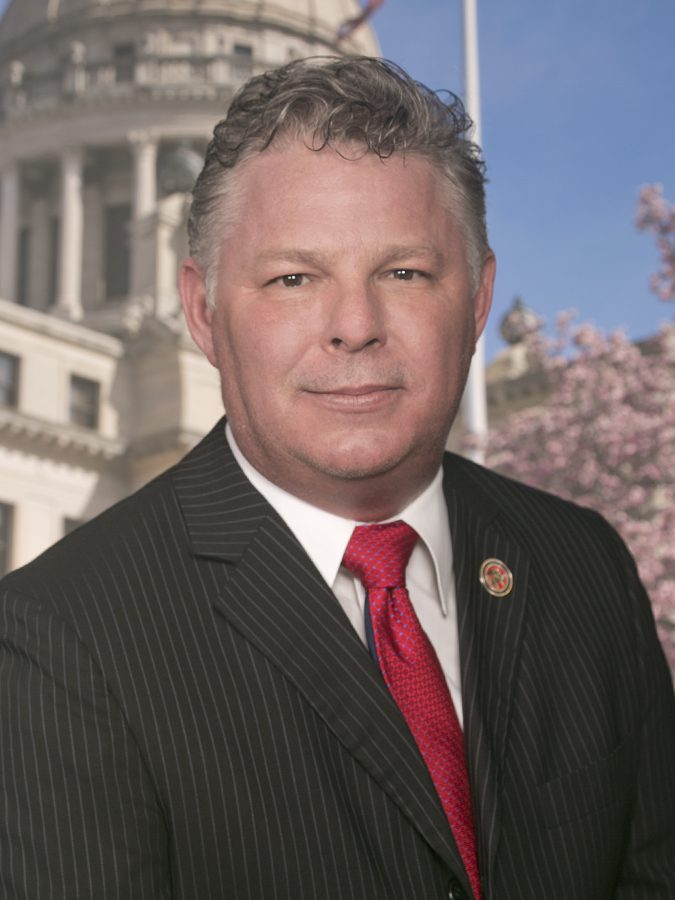
For the 2025–2026 school year, any child who is eligible to enroll in K-12 public schools or who was enrolled in the Education Scholarship Account Program for the previous year and who meets the eligibility criteria to participate in Medicaid or the Children’s Health Insurance Program (CHIP) would be able to participate in the new MSA program, if passed. The total participation that year would be cut off at 1.5% of the 2022-2023 public student enrollment.
For the 2026-2027 school year, the criteria for the Medicaid and CHIP eligibility falls off, and up to 3% of student enrollment could participate.
By the 2027-2028 school year, any child who is eligible to enroll in public school, including homeschool students, could participate in the MSA program. However, homeschool student MSAs would be capped at $1,000, with participation cut off at 4.5% of enrollment.
In the 2028-2029 school year, 6% of students would be eligible to participate in the MSA program. Finally, by the 2029-2030 school year, there would be no maximum participation, meaning all K-12 students would at least have the option of making use of a Magnolia Scholarship Account.
Asked why he thinks there is so much renewed interests in school choice programs across the country, DeAngelis said “parents are paying more attention than ever before to who is willing to respect their right to direct the upbringing of their children. Politicians would be wise to listen to them. The money meant for educating children doesn’t belong to the schools. Education funding is meant for educating children. It’s time for Mississippi to fund students, not systems, and join the parental rights revolution.”
HB 1449 also seeks to address concerns about accountability in school choice programs, while not interfering with how non-public schools are run. HB 1449 would require each participating child to take a nationally recognized norm-referenced test or a statewide assessment annually. The legislation does not impose the requirement on private schools, but instead makes the student/family responsible for taking the test. Funds from the MSA could be used to offset the testing expenses. The results would then be sent to the state.
An eligible student would be allowed to return to his/her home school district at any time after enrolling in the MSA program. Upon the returning to his/her home school district, the student’s MSA would be closed, and any remaining funds would be distributed to the student’s school district at the end of the school year.
Non-public school must meet various requirements to participate in the MSA program. Those requirements include:
- Providing parents of participating students with a receipt for all eligible educational expenses.
- Certifying that it will not discriminate on any basis.
- Agreeing to submit any employee who will have contact with participating students to a criminal background check.
- Agreeing not to charge a participating MSA student more for tuition and fees than a nonparticipating student.
The bill is designed not to impose on participating non-public school’s independence or autonomy. It explicitly provides that any participating school will not be required to alter its creed, practices, admission or hiring policies, or curriculum.

